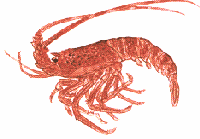Words & Derivations
Separated at birth
A collection of word-pairs, where each originally both derived from the same root - but whose relatedness is now by no means apparent.
queen and gynaecologist
Both from Indo-European (IE) *gwenā : woman
Greek γυνή, genitive γυναικός [gyne, gynaikos] - woman, wife. Hence gynaeco-logy, "study of women", and gynaecologist "one who specialises in the study of women's diseases". Interestingly there is no "andrology" for the study of men or an andrologist to specialise in male ailments.
[A consultant gynaecologist writes (Nov 2008): "There is now such a discipline backed by a learned International Society comprising, apparently, forty national associations. As they now can muster 10,000 andrologists ( i.e. 2 Legions worth), I suggest you make an appropriate adjustment to your text before they spot it and send in their velites to storm your ditch & rampart. Incidentally, they seem to be obsessed with treatments of the “Andropause” . This is an event unknown to science but which obviously trades on the Menopause madness which periodically - or rather non-periodically - hurls the distaff side into what PVM would call a gurgite vasto. However, with regard to the male menopause, there is good news; it appears to be coincident with Death… ]
Gothic qinō , Old English(OE) cwēn - woman, wife , Modern English (NE) queen.
Compare Sanskrit ganā (lady of the gods), Avestan (Old Persian) gənā
glamor and crayfish 
Both from IE *ghereb- : scratch
Greek γράφω, 'I write' γράμμα, 'something written'; compare OE ceorfan > NE carve. Writing involved scratching, obviously. A Middle English (ME) word grammarye, (derived ultimately from γράμμα) meaning 'written incantantations', 'magic' was borrowed into Scots as glamour (magic). The word was revived by Sir Walter Scott, whence it made its way to Hollywood as glamor.
OE crabba (>NE crab) = Old High German (OHG) chrebiz > NHG Krebs > French écrevisse, which was borrowed by NE as crayfish (the -fish is the result of an English attempt to connect it with a more familiar word!). Modern Dutch krabben still means to scratch.

